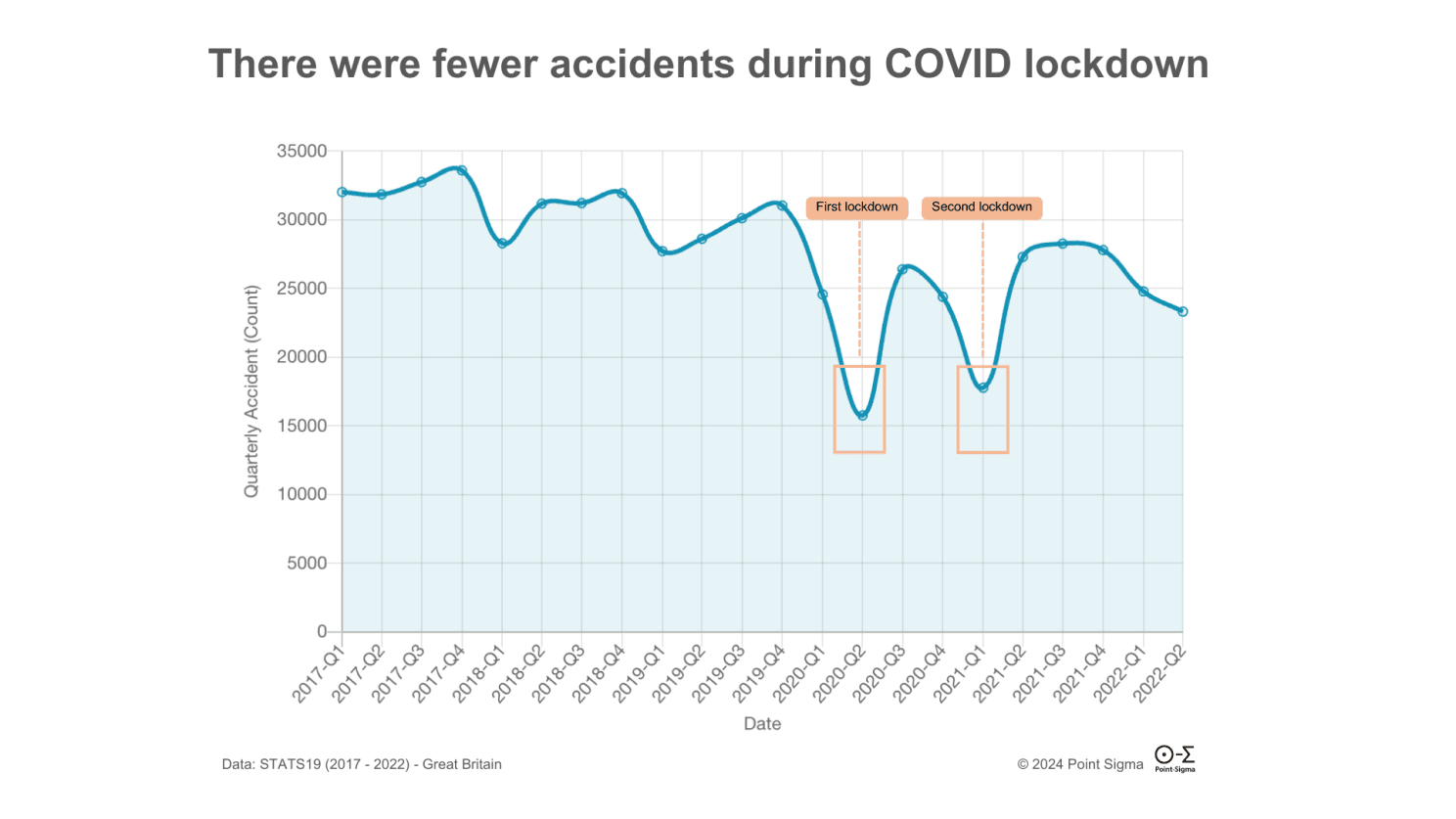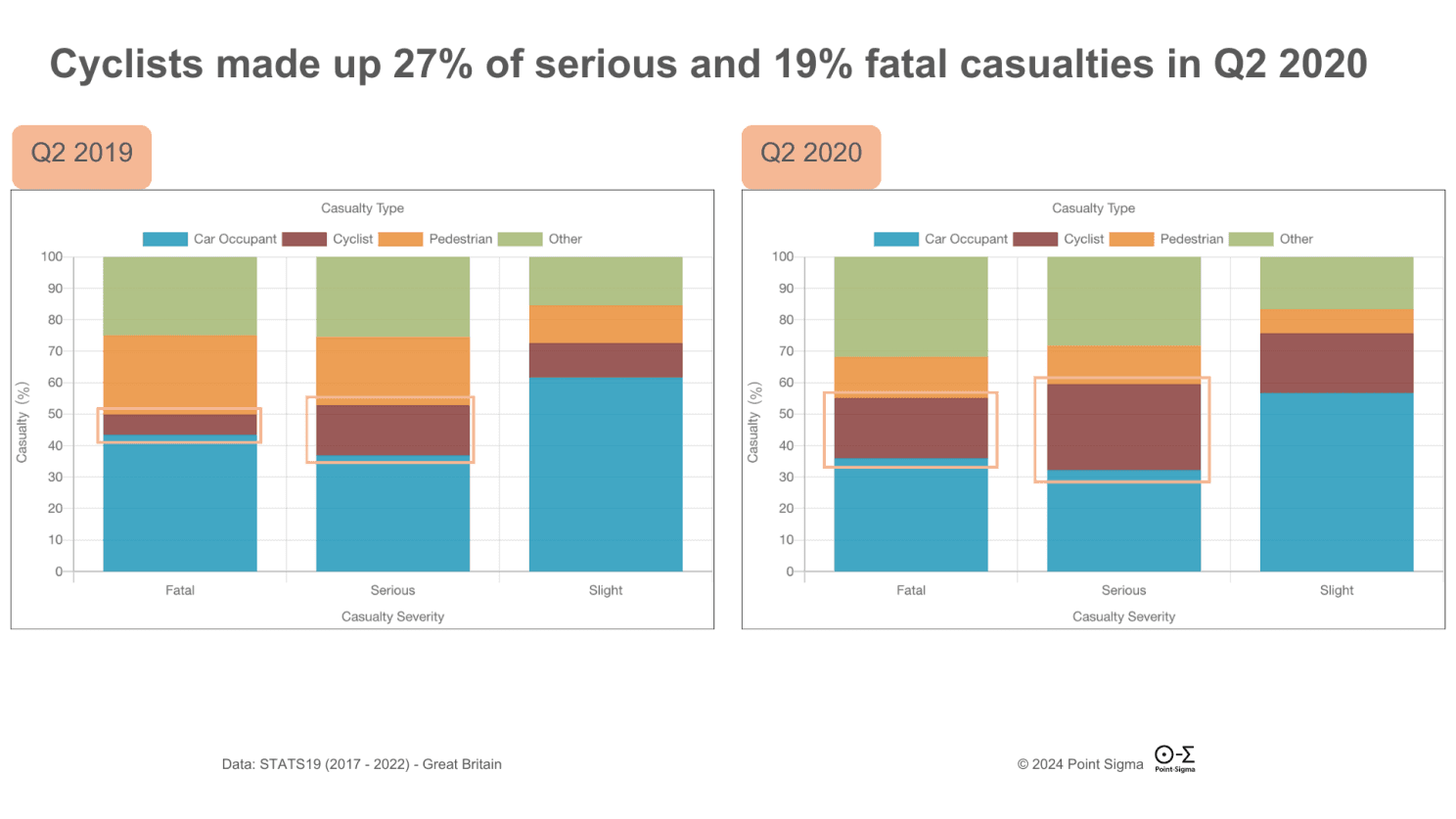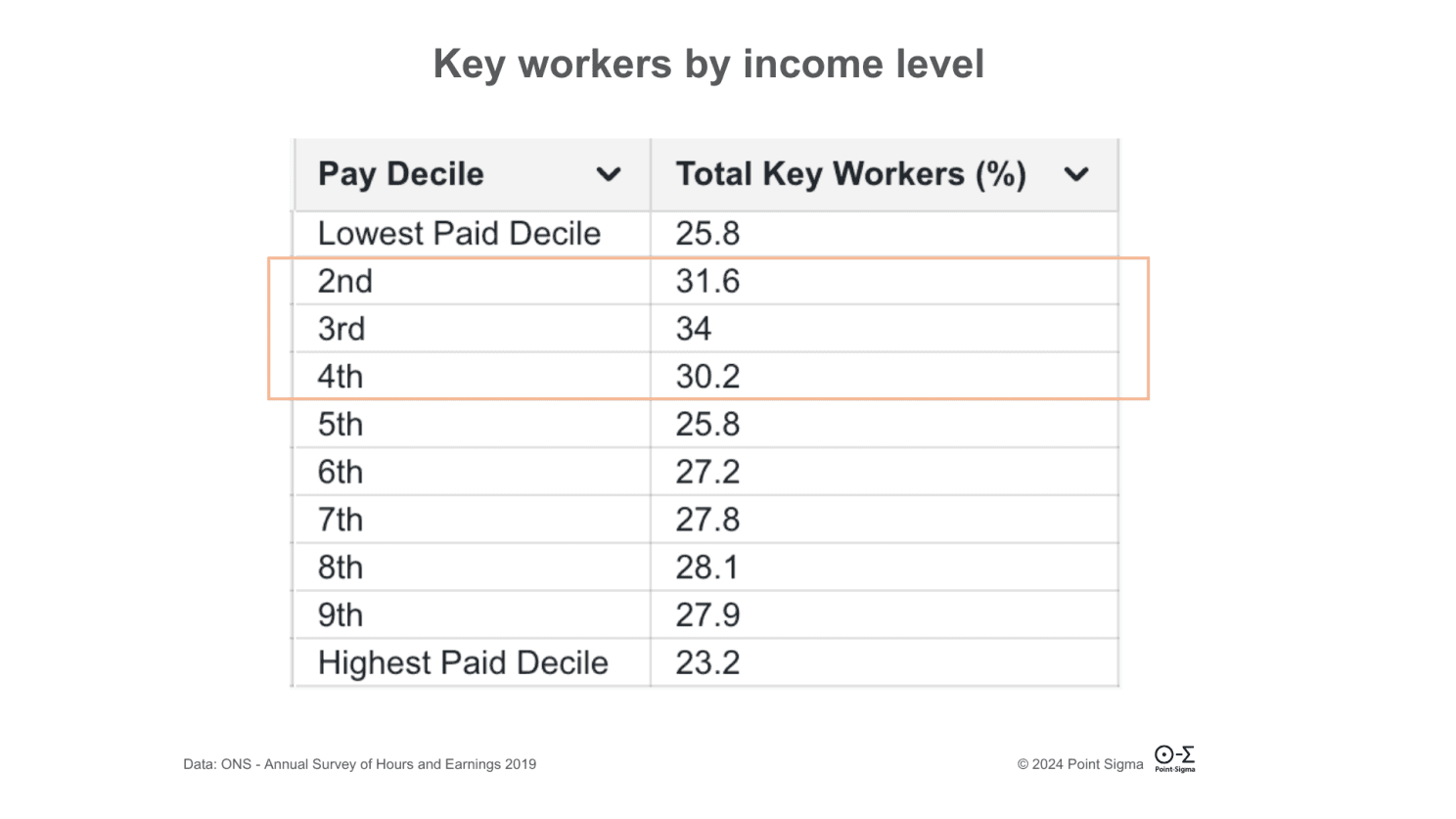Dec 2, 2024
Insights

When COVID-19 emptied Britain's roads in 2020, it created an experiment in urban mobility. Through our analysis of STATS19 collision data from 2017-2022, combined with employment and industry statistics, an important story emerges—one that reveals how an ill-coordinated response to a crisis affected our most vulnerable workers and exposed flaws in our cycling infrastructure.
Empty roads, deadly consequences
A police analyst cycled through London's unusually deserted streets on the morning of April 7th, 2020. The first COVID lockdown had emptied the roads just days earlier, though she continued her commute as an essential worker. In the quiet of that spring morning, a collision involving two vehicles brought an abrupt and fatal end to her journey.
This tragedy exemplifies a disturbing pattern: while total accidents dropped by 45% during lockdown (15,760 in Q2 2020 vs 28,620 in Q2 2019), those that did occur were more likely to be fatal. In April 2020, 2% of accidents resulted in death—a significant increase from 1.3% in the same time period in the previous year.

The vulnerable workers who kept cycling
As public transport became a source of anxiety, the government's urging to cycle—backed by a £2 billion initiative—seemed like a timely solution. Bicycle traffic surged 46% compared to 2019, with key workers especially turning to bicycles as their primary means of transportation.
This surge had devastating consequences: cyclists now accounted for 27% of serious injuries and 19% of fatalities in Q2 2020, up dramatically from 15% and 5% respectively in Q2 2019.

The majority of these cyclists were likely essential workers, who disproportionately came from lower-income households. Among workers in the second-lowest income bracket, healthcare workers made up 13% while food service workers accounted for 10%. More broadly, essential workers represented between 30-34% of the workforce in the lower-middle income ranges. These were the same workers who had no choice but to commute during lockdown, when most of the country stayed home.

An industry unprepared
While the government attempted to support cyclists through various initiatives—free Santander bikes for NHS staff, additional hospital parking, emergency e-bike programs—the bicycle industry struggled to meet the sudden demand. Supply chain disruptions led to desperate inventory stockpiling, followed by an inevitable market correction.
Today, bicycle sales have hit a 39-year low, according to the Bicycle Association of Great Britain. Major players like Moore Large, Wiggle/Chain Reaction, and Islabikes have either closed or entered administration.
Learning from failure
As cycling levels return to pre-pandemic numbers (down 2.9% from December 2019), the government's recent £100 million commitment to cycling infrastructure for 2025-26 seems a modest second attempt at getting active travel off the ground. While the Highway Code updates of 2022 have improved guidance for cyclists, road safety activists argue this isn't enough.
The pandemic cycling boom was one missed opportunity to transform urban mobility. We’ll need more concerted efforts to protect our most vulnerable road users.
—-
Data processing and visualization for this story was largely automated using Point Sigma. Human input focused on uploading data, selecting and refining auto-generated graphs, and interpreting results and writing analysis. Refinements included adding headings, and visual aids like map arrows. Learn more about Point Sigma.